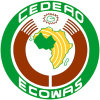Vision
To be the centre of excellence in promoting communities’ pro-activeness, confidence, commitment and culture of hard working in striving for better livelihood embracing gender equality and children’s rights.
Mission
To promote community development, gender equality, equity and children rights through formulation of policies, strategies and guidelines in collaboration with stakeholders active in the country.
Core values
- Discipline and commitment
- Creativeness
- Results oriented
- Integrity
- Customers focused
- Team spirit
- Transparency
- Impartiality
- Responsibility and Accountability
Historical Background
The Ministry of Community Development, Gender and Children (MCDGC), formerly known as Ministry of Community Development, Women Affairs and Children (MCDWAC), was established in November, 1990 with the responsibility to facilitate community development in Tanzania. Before its establishment the Ministry was a department within the Ministry of Local Government, Community Development, Cooperatives and Marketing.
The MCDWAC was mandated to contribute at the the development of communities, women and children by setting up four core functional departments, namely Women and Children, Training and Audio Visual, Technical and Self help and HESAWA.
However, a systematic review of roles, functions and operational structure of the Ministry of Community Development, Women Affairs and Children (MCDWAC) was carried out in 1997 during the Organization and Efficiency (O&E) Review done among all Ministries and Independent Departments under the Government’s Civil Service Reform Programme.
Following that review, the Ministry’s organizational structure was changed into two core functional divisions of Community Development and Women and Children. However, it was soon realized that children development related matters were not being given the prominence they deserved, hence the addition of a new division specific for children development was established in 2002. In the same year the Ministry changed its name into Community Development, Gender and Children.
In 2005, Tanzania changed its Government leadership and hence its structure. Among other changes, was also transferred the mandate of coordinating and monitoring NGOs’ activities from Vice President’s Office to the Ministry of Community Development, Gender and Children.
The Roles
i. Community Development
ii. Women and Gender Development
iii. Children Development
iv. NGO’s Registration, Coordination and Monitoring
v. Policy Development and Planning
vi. Administration and Human Resource Management
vii. Community Information, Education and Communication
viii. Family Development
ix. Finance and Accounting
x. Internal Audit
xi. Public procurement
The Major Functions:
i. Develop, coordinate, monitor and evaluate implementation of the Community Development Policies and programs
ii. Coordinate, prepare and issue guidelines and operating procedures for Community Development Institutes (CDTIs) and Folk Development Colleges (FDCs)
iii. Develop guidelines for professional advancement of Field Units technicians, and Coordinate Community Based Organizations (CBOs).
iv. Prepare programs’ implementation, coordinate, follow-up and evaluate implementation of Women and Gender Development Policy.
v. Collect, process and store gender related data and statistics for utilization and dissemination.
vi. Oversee coordination and monitoring of community based HIV/AIDS interventions paying attention to gender issues.
vii. Formulate and oversee implementation of Children and Family development policies.
viii. Registration, Coordination and Monitoring of NGOs
ix. Advocate, publicize, disseminate, broadcast and document ministry’s policies, strategies, programs, plans, regulations and functions to create public awareness.

